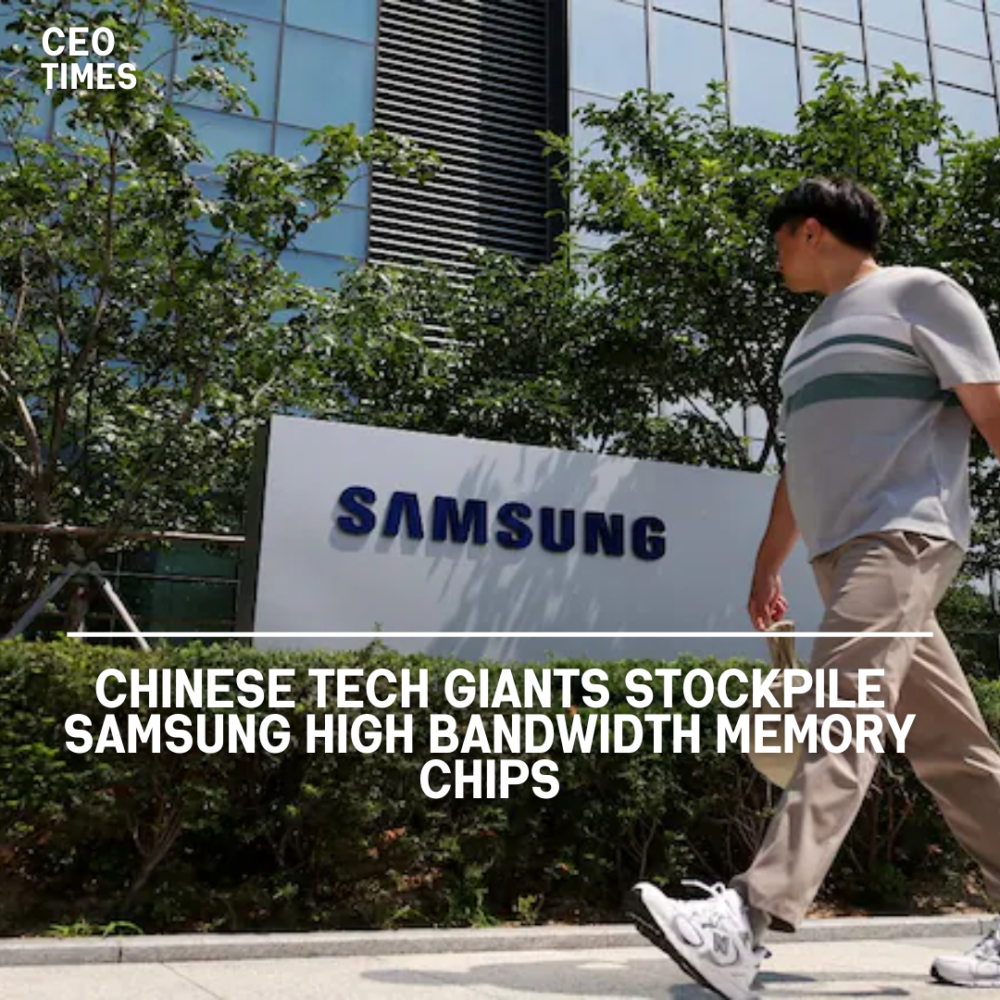Chinese technology giants, including Huawei and Baidu, along with various startups, are amassing high-bandwidth memory (HBM) semiconductors from Samsung Electronics. According to three insider sources, this surge in procurement is a preemptive measure against anticipated U.S. export restrictions on these chips to China.
Increased Demand for AI-Capable Semiconductors:
Since early 2024, these companies have significantly increased their acquisition of AI-capable semiconductors. One source indicated that China accounted for approximately 30% of Samsung’s HBM chip revenue in the year’s first half. This escalation underscores China’s commitment to advancing its technological ambitions despite escalating trade tensions with the U.S. and other Western nations.
Impact of U.S. Trade Tensions on the Global Semiconductor Supply Chain:
Chinese firms’ increasing procurement of HBM chips highlights the broader impact of U.S.-China trade tensions on the global semiconductor supply chain. U.S. authorities are expected to announce a new export control package this month, which will impose further restrictions on China’s semiconductor industry, particularly concerning high bandwidth memory chip access. The U.S. Department of Commerce has noted it is continually updating export controls to protect national security and maintain the technological ecosystem.
Importance of HBM Chips in AI Development:
HBM chips are vital for developing advanced processors, such as Nvidia’s graphics processing units, which are crucial for generative AI applications. Only three major manufacturers produce HBM chips: South Korea’s SK Hynix and Samsung and U.S.-based Micron Technology. Due to the global AI boom, there is a high demand for these advanced chips, resulting in supply constraints.
China’s Focus on HBM2E Chips:
Chinese demand has predominantly centered on the HBM2E model, two generations behind the most advanced HBM3E version. Nori Chiou, investment director at White Oak Capital Partners, noted that China’s reliance on Samsung’s HBM chips has surged due to its domestic technology development still maturing and other manufacturers’ capacities being fully booked by American AI companies.
Broader Chinese Demand and Stockpiling:
The stockpiling of HBM chips in China spans various industries, including satellite manufacturing and tech firms like Tencent. One source revealed that chip-designing startup Hawking recently placed orders for HBM chips from Samsung. Additionally, Huawei has been utilizing Samsung’s HBM2E semiconductors to develop its advanced Ascend AI chip.
Samsung and SK Hynix declined to comment on the matter. Micron, Baidu, Huawei, Tencent, and Haawking’s requests for comments went unanswered. The sources requested obscurity due to the sensitivity of the topic.




















